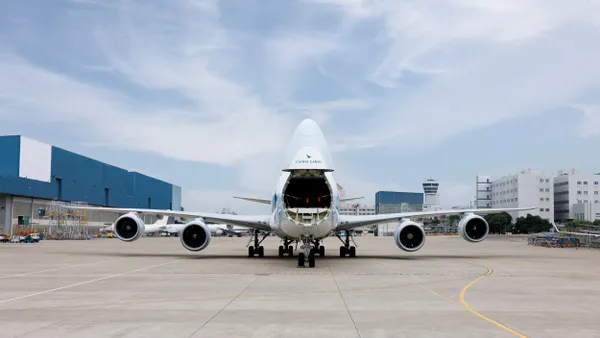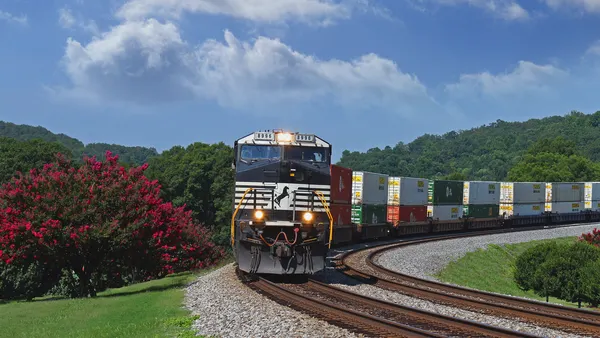Dive Brief:
- The American Association of Port Authorities (AAPA) campaign, "America: Keep It Moving," is an effort to lobby for infrastructure support, a Press Release reported. The campaign seeks to draw attention to the connection between ports and job creation within the export supply chain.
- Currently, ports generate 23 million American jobs and $321 billion in federal, state and local tax revenue. A 2015 Martin Associates report cites the income generated by ports is $4.6 trillion, or 26% of the U.S. economy.
- By 2037, the U.S. is expected to export roughly 52 million shipping containers per year. By 2045, freight exports are projected to grow 40%, with an increase in value of 92% percent, according to the U.S. Department of Transportation.
Dive Insight:
Ports suffering from failing infrastructure maintenance are only one piece of the puzzle. First and last mile passage to ports, including roads, railways, bridges and tunnels are heavily congested, also hamper productivity. Multi-modal means of goods transports need investment, but even then, President Trump's $1 trillion infrastructure proposal may still not be enough.
The existing Harbor Maintenance Tax (HMT), created in 1986, is expected to bring in more than $1.7 billion per year. Historically, cash outlays have not kept pace, leading to an expected surplus of over $9 billion in the Harbor Maintenance Trust Fund (HMTF), money that could go toward port and landslide maintenance such as roads.
Without this investment, a GDP loss of $3.9 trillion dollars could result by 2025, according to the American Society of Civil Engineers (ASCE). Additionally, a $9.3 billion U.S. trade loss – projected from the use of undersized vessels in shallow harbors and narrow channels caused by inefficient or non-existent dredging – could occur by 2020. Those shallow harbors could in turn increase product costs by $14 billion, or $3,400 per household annually. According to the ASC, the biggest funding gap between now and 2025 is expected to hit surface transportation, accounting for $1.1 trillion alone.













